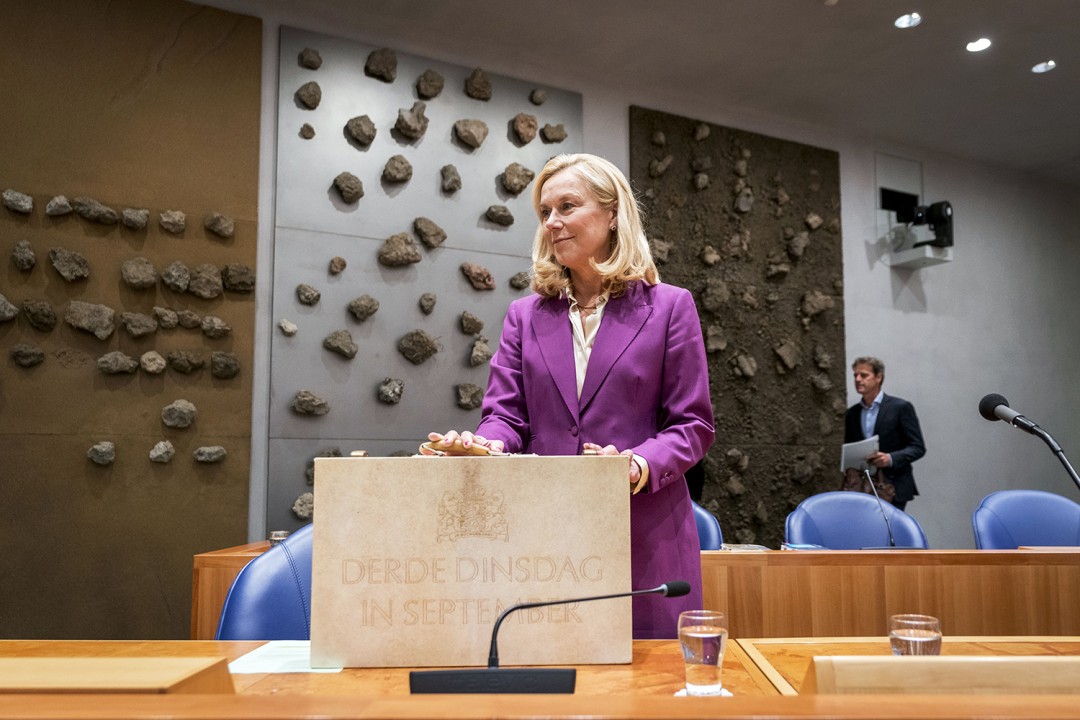Reform UK Internal Conflict: What's Happening?

Table of Contents
The Key Players and Their Agendas
Understanding the Reform UK internal conflict requires identifying its key players and their competing agendas. The conflict largely revolves around the differing visions and ambitions of its leading figures.
-
Richard Tice: Currently the leader of Reform UK, Tice's vision for the party centers on positioning it as a serious alternative to the Conservative Party. His focus is on economic issues, advocating for lower taxes and reduced government spending. His leadership style has been described by some as assertive and uncompromising. This drive for a more mainstream, electoral-focused approach is central to his agenda.
-
Nigel Farage: Although not currently holding an official position within Reform UK, Farage's influence remains significant. His populist approach and strong anti-establishment rhetoric continue to resonate with a section of the party's base. While his precise involvement in the current conflict is unclear, his past association casts a long shadow over internal debates and potentially influences various factions.
-
Other Significant Figures: Several other figures within Reform UK contribute to the internal dynamics, holding various influential positions within the party structure. Their loyalties and allegiances frequently shift, adding another layer of complexity to the ongoing conflict. Ideological differences, ranging from the degree of Euroscepticism to preferred political strategies, further fuel the divisions.
The Nature of the Conflict: Policy Disagreements or Power Struggles?
The Reform UK internal conflict appears to stem from a complex interplay of policy disagreements and power struggles. While precise details often remain shrouded in internal party politics, several key factors emerge.
-
Policy Disagreements: Although ostensibly united by Brexit, internal disagreements on specific policy approaches are evident. Diverging views on economic policy, the party's stance on social issues, and the best electoral strategy contribute to the fracturing within Reform UK.
-
Power Struggles: Ambitions for leadership and control within the party structure are clearly at play. The struggle for influence over party messaging, candidate selection, and resource allocation fuels the conflict and deepens existing divisions.
-
Factionalism: The party appears to be split into distinct factions, each vying for control. These internal alliances and power blocs further complicate the situation, making compromise and resolution particularly challenging.
The Impact on Reform UK's Political Prospects
The internal conflict significantly impacts Reform UK's political prospects, potentially hindering its ability to achieve its goals.
-
Public Perception and Voter Support: The ongoing infighting damages the party's image, leading to decreased public trust and potentially affecting voter support. News of internal conflicts often overshadows the party's policy positions, hindering their ability to connect with potential voters.
-
Fundraising and Party Organization: Internal disputes can make it difficult to attract donations and maintain efficient party organization. Uncertainty surrounding the party's future direction can deter potential donors and volunteers.
-
Campaign Effectiveness: Internal divisions weaken the party's campaign efforts, undermining its ability to effectively communicate its message and coordinate its activities. This lack of cohesion directly impacts the party’s electoral performance.
Potential Resolutions and Future Outlook for Reform UK
The future of Reform UK hinges on resolving the current internal conflict, but several scenarios are possible.
-
Reconciliation and Compromise: A negotiated settlement between the warring factions is a possibility, though the deep-seated divisions might make this difficult. This would require significant concessions from all sides and a clear commitment to unity.
-
Leadership Changes or Restructuring: A leadership change, potentially accompanied by internal restructuring, could help heal the rift. A new leader might be able to unify the party around a common vision.
-
Further Splintering or Collapse: Failure to resolve the conflict could lead to further fragmentation and the ultimate collapse of Reform UK. The party could split into multiple factions, weakening its overall political impact.
Conclusion:
The Reform UK internal conflict presents a complex and evolving situation, involving key players with differing agendas, fuelled by both policy disagreements and power struggles. The impact on the party's public perception, fundraising, and electoral prospects is undeniable. While various resolutions are possible, the outcome will significantly shape the future of Reform UK and its role in British politics. Stay updated on the latest developments in the Reform UK internal conflict. Share your insights on the future of Reform UK and its internal struggles.

Featured Posts
-
 Glastonbury Festival Fan Anger Over Impossible Stage Time Choices
May 03, 2025
Glastonbury Festival Fan Anger Over Impossible Stage Time Choices
May 03, 2025 -
 Sundar Pichai Warns Doj Antitrust Plan Threatens Google Search
May 03, 2025
Sundar Pichai Warns Doj Antitrust Plan Threatens Google Search
May 03, 2025 -
 Dutch Government Considers Reviving Ow Subsidies To Attract Bidders
May 03, 2025
Dutch Government Considers Reviving Ow Subsidies To Attract Bidders
May 03, 2025 -
 Bayern Munich And Manchester United Remember Poppy Atkinson
May 03, 2025
Bayern Munich And Manchester United Remember Poppy Atkinson
May 03, 2025 -
 Une Rencontre Bouleversante Emmanuel Macron Et Les Victimes De L Armee Israelienne
May 03, 2025
Une Rencontre Bouleversante Emmanuel Macron Et Les Victimes De L Armee Israelienne
May 03, 2025
